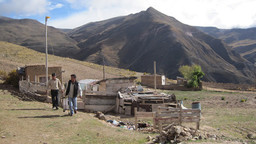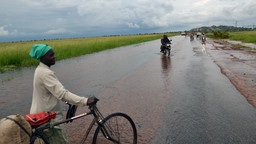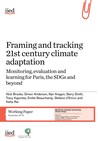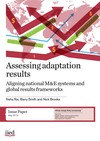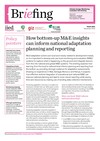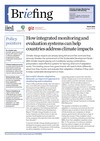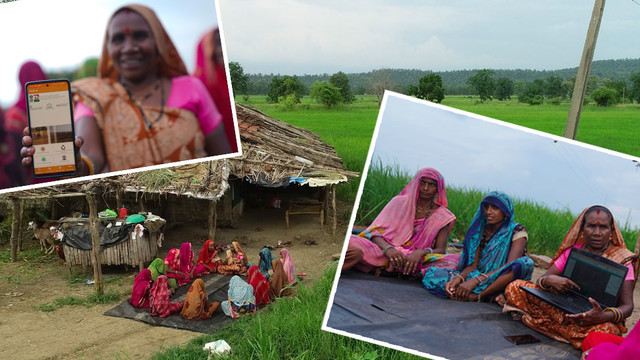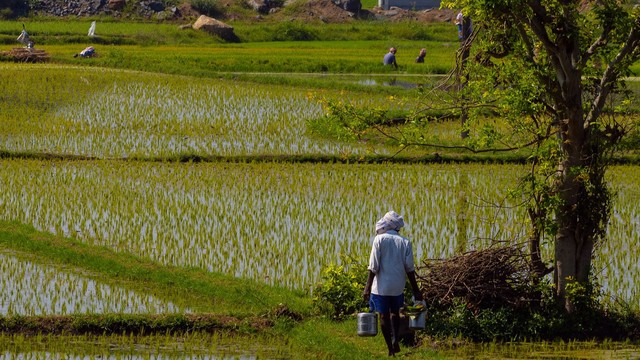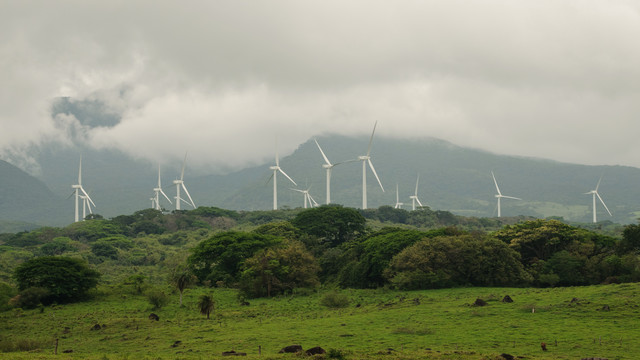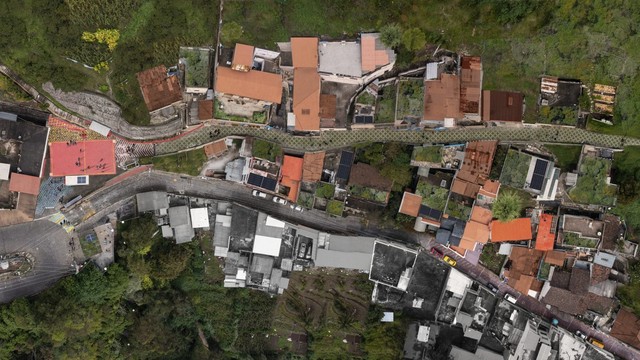Supporting national monitoring and evaluation systems to enable adaptation assessment and reporting
IIED is working on a programme to improve and share understanding about monitoring and evaluation (M&E) for climate change adaptation planning and reporting.
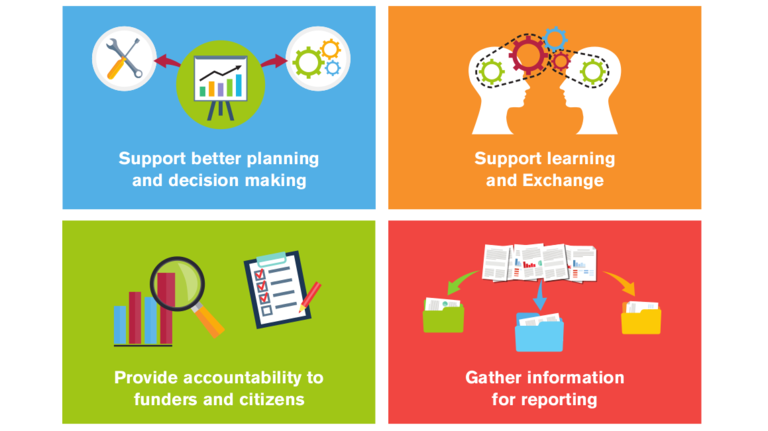
The benefits of undertaking monitoring and evaluation include better decision making, supporting learning and accountability and getting information for reporting (Image: IIED)
This project aims to help developing countries establish adaptation monitoring mechanisms that improve transparency, increase learning and effectively evaluate progress towards adaptation goals. The emphasis will be on enabling stakeholders to track progress, to inform practice and enable rapid learning from experience.
This will inform future national policy, planning and investment decisions and improve reporting under the Paris Agreement.
The project is part of a wider programme of work providing Support for the Implementation of the Paris Agreement (SPA). The programme is being supported by GIZ on behalf of the German Federal Ministry for the Environment (BMU).
Background
The 2015 Paris Agreement set out a global goal for adaptation. It also put in place an enhanced transparency framework for climate change action and support. The framework is designed to build mutual trust and confidence between the parties and to improve implementation.
Although countries have set out information on planned adaptation actions in their Nationally Determined Contributions (NDCs) and in their National Adaptation Plan (NAP) processes, existing documents have insufficient level of detail on how to monitor and report on adaptation measures.
Moreover, the many qualitative adaptation targets (such as better adaptive capacity, improved resilience) are complex and require assessment across a range of levels: global, national, local, and sectoral. Unlike mitigation, adaptation cannot easily be measured using any single metric.
As a result, countries wanting to assess adaptation progress face numerous challenges, including how to report on adaptation activities being undertaken across widely varied ecosystems, at different scales from local to national, as well as numerous qualitative goals and complex metrics.
What are we doing?
Together with our partners, the International Centre for Climate Change and Development (ICCCAD), we are undertaking an analysis of existing reviews of adaptation monitoring and evaluation practices, highlighting which approaches, tools and indicators have been most useful for decision makers. This analysis will inform the compilation of good practice guidance on monitoring and evaluating national adaptation and development efforts.
We will also explore examples of how results frameworks designed for other global programmes such as the Sustainable Development Goals can be harmonised with national M&E systems to inform adaptation M&E activities and reporting.
We aim to refine the insights gained iteratively to make sure they respond to the needs of developing countries, and are articulated and communicated effectively to stakeholders such as evaluation practitioners and national level civil servants responsible for reporting back against international agreements.
Our aim will be to enable them to track progress with comparable measures, to inform practice and enable rapid learning from experience. This will ensure effective reporting to the UNFCCC and help to inform future policy, planning and investment decisions.
We will develop practical guidance for developing countries on:
- Appropriate and effective ways to monitor and evaluate national adaptation efforts
- Methods, tools and approaches to synergise national M&E systems with the global results frameworks, and
- Effective ways to collect data to assess progress and report in achieving adaptation outcomes and SDGs.
Disseminating results
We will share case studies via international and regional forums on transparency. The deeper understanding of M&E for adaptation will also be fed through into the wider SPA programme.
Events
- May 2018: 8th Regional Workshop of the Cluster Francophone of the Partnership on Transparency in the Paris Agreement - Francophone countries discussed M&E of adaptation in Cameroon
- March 2018: Regional Exchange on Strengthening MRV capacities and preparing for the Enhanced Transparency Framework in Asia-Pacific
Webinars
We are organising a series of webinars, as follows:
- July 2018: What does successful adaptation look like, and what do we want to measure in the context of adaptation, national development and the SDGs?
- October 2018: How developing country governments could efficiently gain from investing in national M&E systems (hosted by WRI)
- January 2019: How can global funds build on national MEL systems to assess adaptation progress?
- March 2019: Integrated M&E systems - supporting national monitoring and evaluation systems and streamlining M&E to enable adaptation reporting and assessing SDGs progress.
